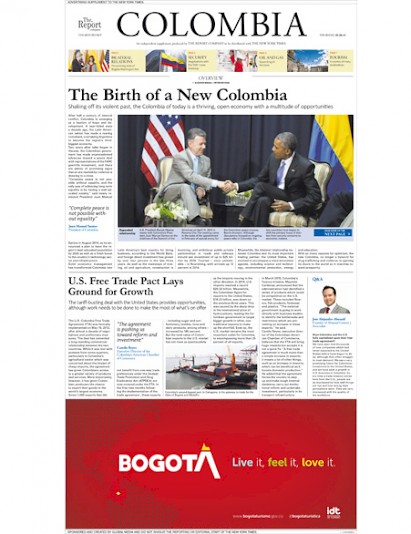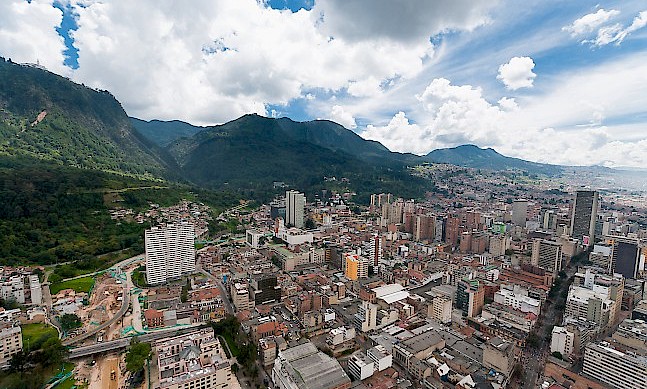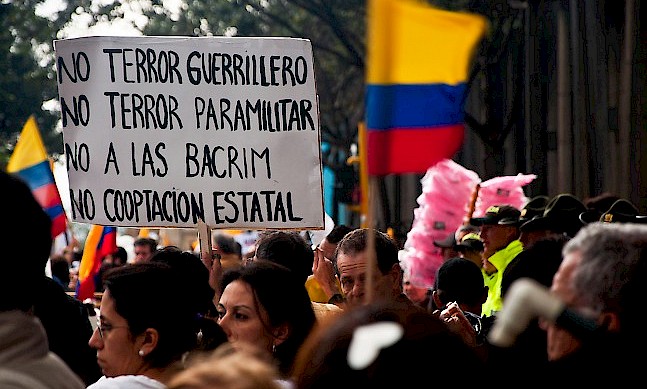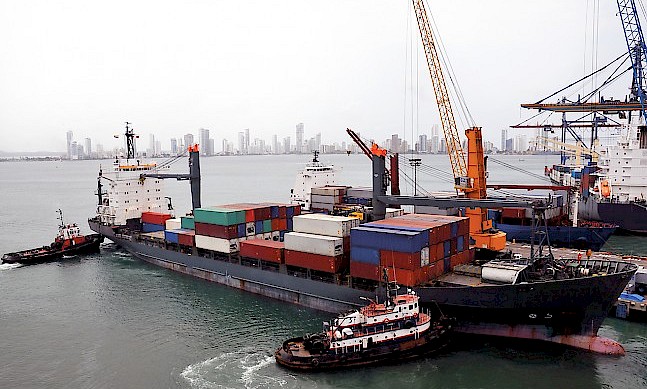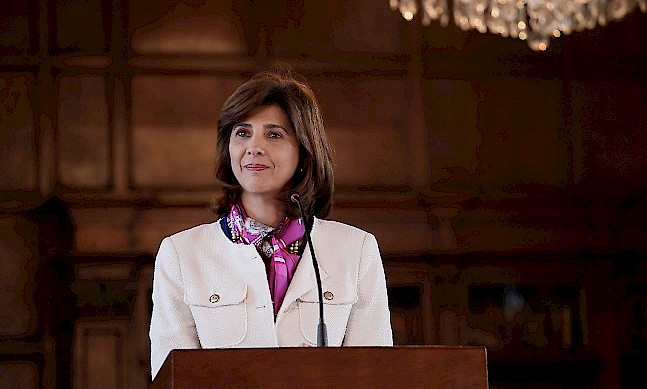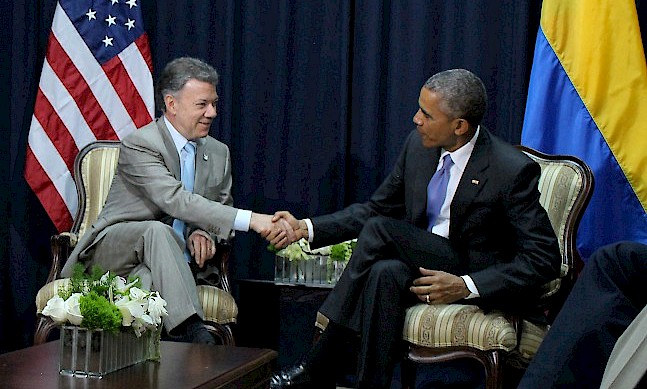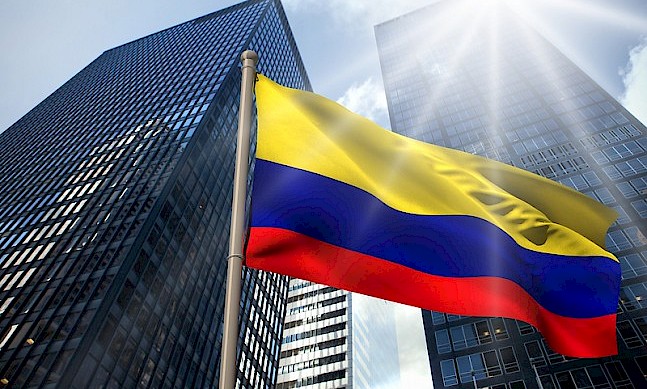A new chapter begins in the relationship between Latin America’s oldest democracy and the world’s largest economy.
While Colombia’s economic partnership with the United States stretches back to its coffee boom in the early 20th century, relations of late have been strongly and almost exclusively characterized by cooperation in security issues. However, the tide is once again turning as peace dawns and a free-trade agreement begins to take effect.
The basis of the relationship between Washington and Bogota was cemented by the implementation of Plan Colombia in 2000. This bilateral deal saw the U.S. administration deliver military, economic and diplomatic assistance to a country which was struggling to deal with the effects of a guerrilla insurgency and drug trafficking.
Today, as Colombia takes its final steps toward a historic peace deal which looks set to bring the 50-year FARC insurgency to an end, a multifaceted alliance is emerging between Bogota and Washington. The recent launch of the Colombia-U.S. High-Level Strategic Security Dialogue (HLSSD) will allow both countries to discuss new and innovative ways to counter threats like transnational organized crime, terrorism and drug trafficking. Moving beyond security issues, the two nations are also working together on a more innovative agenda, including science and technology, environmental protection, energy, education, democracy and human rights.
“The fundamental task is to coordinate our efforts so that peace reaches every citizen and that the state reaches every last corner of Colombia.”
Juan Fernando Cristo Bustos Minister of the Interior
Tweet This
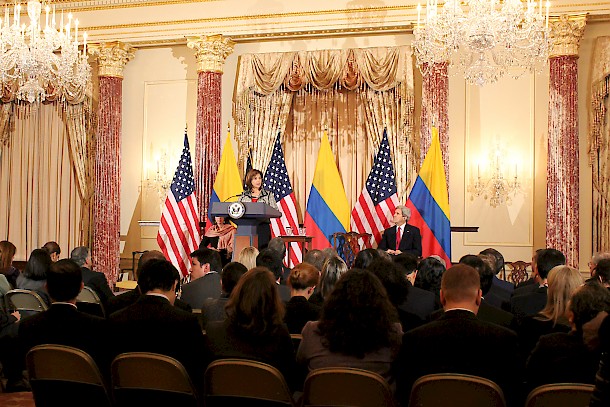 Colombian foreign minister Maria Angela Holguin and U.S. Secretary of State John Kerry at the Fourth Annual U.S.-Colombia High-Level Partnership Dialogue in February 2014. Photo: Ministry of foreign affairs
Colombian foreign minister Maria Angela Holguin and U.S. Secretary of State John Kerry at the Fourth Annual U.S.-Colombia High-Level Partnership Dialogue in February 2014. Photo: Ministry of foreign affairs
Concluding a meeting at the Summit of the Americas in Panama City in April, President Barack Obama and President Juan Manuel Santos noted that there has been progress since a 2012 summit on the Colombian peace process. Obama expressed his continued support for Colombia as it works through victims’ rights and other issues related to the peace talks. He added that the appointment of a U.S. special envoy to the peace process symbolizes shared hope for a stable and lasting peace in Colombia.
Indeed, President Santos has maintained the close relations with Washington which were nurtured by his predecessor, Alvaro Uribe, and his administration aims to broaden the basis of the bilateral relationship from military cooperation and trade in the major economic sectors to a more varied patchwork of social and cultural exchange.
Camilo Reyes, executive director of the Colombian-American Chamber of Commerce, believes that the bilateral relationship is strong enough to move from a muscular, military mode to a more relaxed and fruitful phase. “Colombia has a privileged relationship with the United States but one that was quite focused on specific issues such as security and the fight against the drug trade, which made the relationship quite dramatic.”
“The U.S. took a chance on us at a time when we were quite marginalized and stigmatized.”
Maria Angela Holguin Minister of Foreign Affairs
Tweet ThisWith expanded trade flows between the United States and Colombia, combined with the latter’s improved relations with neighbors Ecuador and Venezuela, there are hopes for the creation of a free-flowing space for increased prosperity. “Now there is a much more stable and calm outlook, which will allow for a smoother relationship. We will probably find that there are many issues on the global agenda that we can work on together,” adds Reyes.
The Colombian ambassador to the United States, Luis Carlos Villegas, is working toward greater cooperation in a number of areas, including science and technology and the achievement of Global Entry status for Colombians traveling to the United States. He believes Washington’s input will be crucial even after the peace process has been concluded. “Once Colombia reaches an agreement with the FARC, we will require international participation to reinstate the government’s presence, not just in terms of security but also institutionally in the 300,000 square kilometers of rural areas where development is massively needed,” he said.
Interior minister Juan Fernando Cristo agreed that the United States will need to be a key player if the Colombian administration is to win the peace. “This is why we see the need for a Plan Colombia for the post-conflict period,” he points out. “It is very important to change the focus so that the United States continues to be linked politically and economically to the construction of the post-conflict economy. They have been our partners throughout this process and they should also reap the harvest of peace after so many years of struggle.”


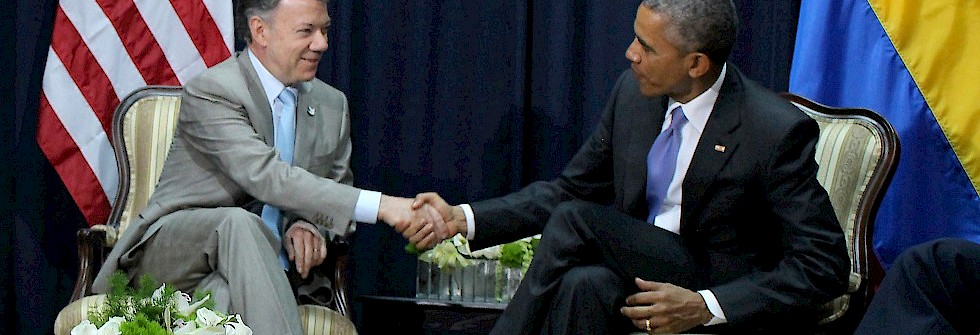 U.S. President Barack Obama meets with Colombia’s President Juan Manuel Santos in Panama City. Photo: Ministry of foreign affairs
U.S. President Barack Obama meets with Colombia’s President Juan Manuel Santos in Panama City. Photo: Ministry of foreign affairs
